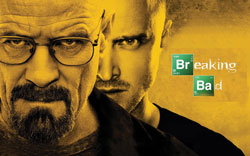To those who are as familiar with showrunner Ryan Murphy as I am, he is the mastermind creator of American Horror Story, another recent darling of American television.
However, viewers should not go watch 9-1-1 with the expectation of an American Horror Story spinoff.
Rather, 9-1-1 is a drama and action TV series following Station 118 in their endeavor to keep the citizens of Los Angeles safe.
They are an association of firefighters, police officers and trained paramedics; naturally, the show is always experiencing the exciting high stakes of loss of life. But the show is about more than gore and action—it deeply explores themes of diversity, inclusion, family, and love.
Perennial award-winner Angela Bassett is policewoman Athena Grant, and she does an extraordinary job at representing a strong-willed, empowered, and empowering Black woman in the police force. She is presented with adversity in both her home life but also at work; occasionally for simply being a woman.
Athena is often underestimated, but three seasons in and she has landed back on top. She knows what she wants and is fiercely protective of her husband and two children. She, like the rest of the main characters, is faced with traumatic experiences yet always lends a hand to those in deep suffering.
Peter Krause plays “Bobby” Nash, the firestation’s captain. He makes very tough decisions and is an exemplary captain, but he hides a deep secret. To avoid spoilers as tactfully as possible: Bobby Nash is a relatable man that has suffered personal loss and currently battles with substance abuse as a result of his profound grief.
Many of us struggle with mental health, including its too-common effects like substance abuse and grief. This is what makes Bobby Nash an empathetic boss and wonderful man; despite his intense struggles, he maintains his selfless attitude.
Henrietta “Hen” Wilson, a paramedic in the unit, is played sympathetically by Aisha Hinds. Hen is a black lesbian woman who, like many of us—regardless of sexual orientation—struggles with romantic partnerships and the venture of marriage. She also faces traumatic experiences that strengthen her character and the viewers who watch her character growth. She is an overachiever, beginning as a paramedic yet pursuing a higher education at all costs.
Kenneth Choi plays “Chimney” Han, an Asian American man who struggles with family disputes and feelings of resentment towards his parents. Many have struggled to reconnect with family and Chimney’s journey takes us through not only his reconnection with family but the creation of his own.
Jennifer Love Hewitt plays Maddie Buckley, a fierce woman, like all women of 9-1-1, Maddie overcame an abusive relationship and managed to redo a life in Los Angeles, away from her old life and beside her brother Buckley. She, too, managed to leave her old life and restart again with a family she loves and that loves her.
Family is an important concept at the core of 9-1-1. The show promotes unity, community, family, and the sacrifices these characters make for themselves and their loved ones. It encourages people to do what is necessary for their mental health, whether that be pursuing a dream or leaving behind an old life and starting anew.
However, inclusivity is what also makes 9-1-1 such a great show. The series is racially diverse, with characters from all backgrounds and walks of life. Murphy does not shy away from including marginalized groups, while avoiding making the characters seem tokenized at the same time. Every character has a purpose and the relatable life of being marginalized, whether they are a woman, a person of color, or otherwise discluded groups.



